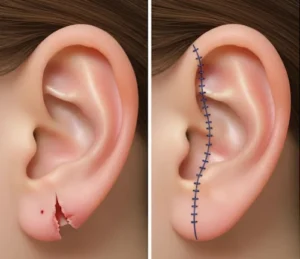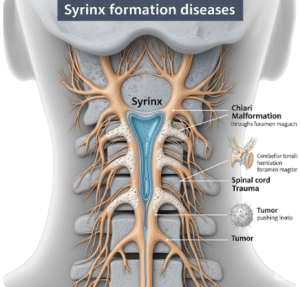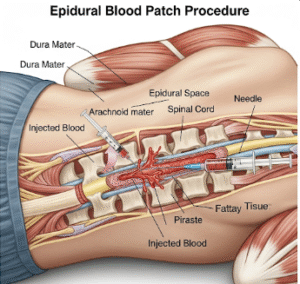Overview
Missed or late periods refer to a delay or absence of menstruation beyond the expected menstrual cycle. Medically, this can be classified as:
- Amenorrhea – complete absence of menstruation for three or more months.
- Oligomenorrhea – infrequent or irregular menstrual cycles, often more than 35 days apart.
While occasional delays can be normal due to stress or minor hormonal fluctuations, persistent missed periods may indicate underlying health issues such as hormonal imbalances, reproductive disorders, or lifestyle factors.
In Korea, gynecologists and reproductive specialists evaluate and treat delayed or missed periods using hormonal testing, lifestyle guidance, and tailored medical interventions.
Key Facts
➤ A normal menstrual cycle lasts 21–35 days.
➤ Missed or late periods can result from stress, hormonal imbalance, or medical conditions.
➤ Pregnancy is a common cause in women of reproductive age.
➤ Persistent absence of periods requires evaluation to prevent fertility complications and detect underlying diseases.
➤ Treatment in Korea ranges from lifestyle management to hormonal therapy and reproductive interventions.
What is Missed or Late Periods?
Menstrual cycles are regulated by a complex interaction of hormones including estrogen, progesterone, and luteinizing hormone (LH).
➔ A missed period occurs when the uterus does not shed its lining during the expected menstrual cycle.
➔ A late period happens when the menstrual cycle extends beyond the normal range.
Common patterns:
- One-time delays may occur due to stress, travel, illness, or lifestyle changes.
- Recurrent or persistent delays may indicate polycystic ovary syndrome (PCOS), thyroid disorders, or other hormonal problems.
Symptoms Related to Missed or Late Periods
➤ Absence of menstruation at the expected date.
➤ Spotting or light bleeding in some cases.
➤ Breast tenderness or changes due to hormonal fluctuations.
➤ Acne, weight changes, or excessive hair growth if linked to hormonal disorders.
➤ Fatigue, mood swings, or emotional changes.
➤ Abdominal pain or bloating if ovulation is irregular or delayed.
Causes / Possible Causes
Missed or late periods can arise from physiological, lifestyle, or medical factors:
Physiological Causes
➤ Pregnancy – the most common cause in women of reproductive age.
➤ Breastfeeding – prolactin can suppress ovulation temporarily.
➤ Perimenopause – approaching menopause may cause irregular cycles.
Lifestyle Causes
➤ Stress or emotional disturbances affecting hormonal balance.
➤ Sudden weight loss, dieting, or intense exercise.
➤ Travel or changes in sleep patterns disrupting circadian rhythm.
Medical Causes
➤ Polycystic Ovary Syndrome (PCOS) – hormonal imbalance causing irregular periods.
➤ Thyroid disorders – hyperthyroidism or hypothyroidism affecting cycles.
➤ Pituitary or ovarian disorders – affecting hormone production.
➤ Chronic illnesses such as diabetes or celiac disease.
➤ Medications like antipsychotics, chemotherapy, or hormonal drugs.
Risk Factors
➤ Age – teenagers and women approaching menopause.
➤ High stress levels or psychiatric conditions.
➤ Excessive exercise or athletic activity.
➤ Obesity or rapid weight changes.
➤ Use of certain medications or hormonal contraceptives.
Complications
Persistent missed or late periods may result in:
➤ Infertility or difficulty conceiving.
➤ Bone health issues due to low estrogen levels (osteopenia or osteoporosis).
➤ Metabolic disorders like insulin resistance in PCOS.
➤ Emotional and psychological distress due to hormonal imbalance.
➤ Masking underlying serious conditions if left undiagnosed.
When Should I See My Doctor?
Consult a healthcare provider if:
➤ Periods are absent for three months or more.
➤ Irregular cycles are accompanied by excessive hair growth, acne, or weight changes.
➤ There is unexplained bleeding, pain, or other unusual symptoms.
➤ You are trying to conceive and experience delays in ovulation.
➤ Missed periods persist despite lifestyle improvements.
Early evaluation ensures proper diagnosis and treatment to maintain reproductive and overall health.
Care and Treatment
Lifestyle and Home Measures
➤ Manage stress through meditation, yoga, or relaxation techniques.
➤ Maintain a balanced diet and healthy body weight.
➤ Moderate exercise to support hormonal balance without overexertion.
➤ Track menstrual cycles using apps or calendars to monitor patterns.
Medical Treatments
➤ Hormonal therapy – birth control pills or progesterone supplementation.
➤ Treatment of underlying conditions like PCOS, thyroid disease, or pituitary disorders.
➤ Fertility treatments for women planning pregnancy.
➤ Medication review to adjust drugs affecting menstrual cycles.
Preventive Measures
➤ Maintain healthy lifestyle habits including nutrition, exercise, and sleep.
➤ Regular gynecological checkups to detect hormonal or reproductive issues early.
➤ Early management of chronic conditions such as diabetes or thyroid disorders.
Treatment Options in Korea
Korea provides advanced gynecological care for missed or late periods:
Diagnostic Services
➤ Blood tests for hormonal profiling, thyroid function, and metabolic assessment.
➤ Pelvic ultrasound to detect ovarian cysts, fibroids, or structural abnormalities.
➤ Endocrine evaluation to identify pituitary or adrenal causes.
➤ Fertility assessment for women planning pregnancy.
Therapies and Supportive Care
➤ Hormonal therapy tailored to cause and patient’s reproductive goals.
➤ Lifestyle guidance including nutrition, exercise, and stress management.
➤ Traditional Korean medicine options like acupuncture or herbal remedies for cycle regulation.
➤ Multidisciplinary care combining gynecology, endocrinology, and integrative therapies.
✅ In summary: Missed or late periods can be caused by physiological, lifestyle, or medical factors. While occasional delays are often harmless, persistent or recurrent absence of menstruation may indicate hormonal imbalance, reproductive disorders, or systemic diseases. In Korea, women benefit from comprehensive diagnostic evaluation, hormonal therapy, lifestyle interventions, and integrative medicine approaches to restore normal menstrual cycles and maintain reproductive health.













